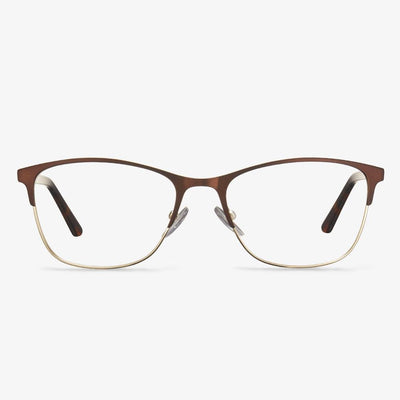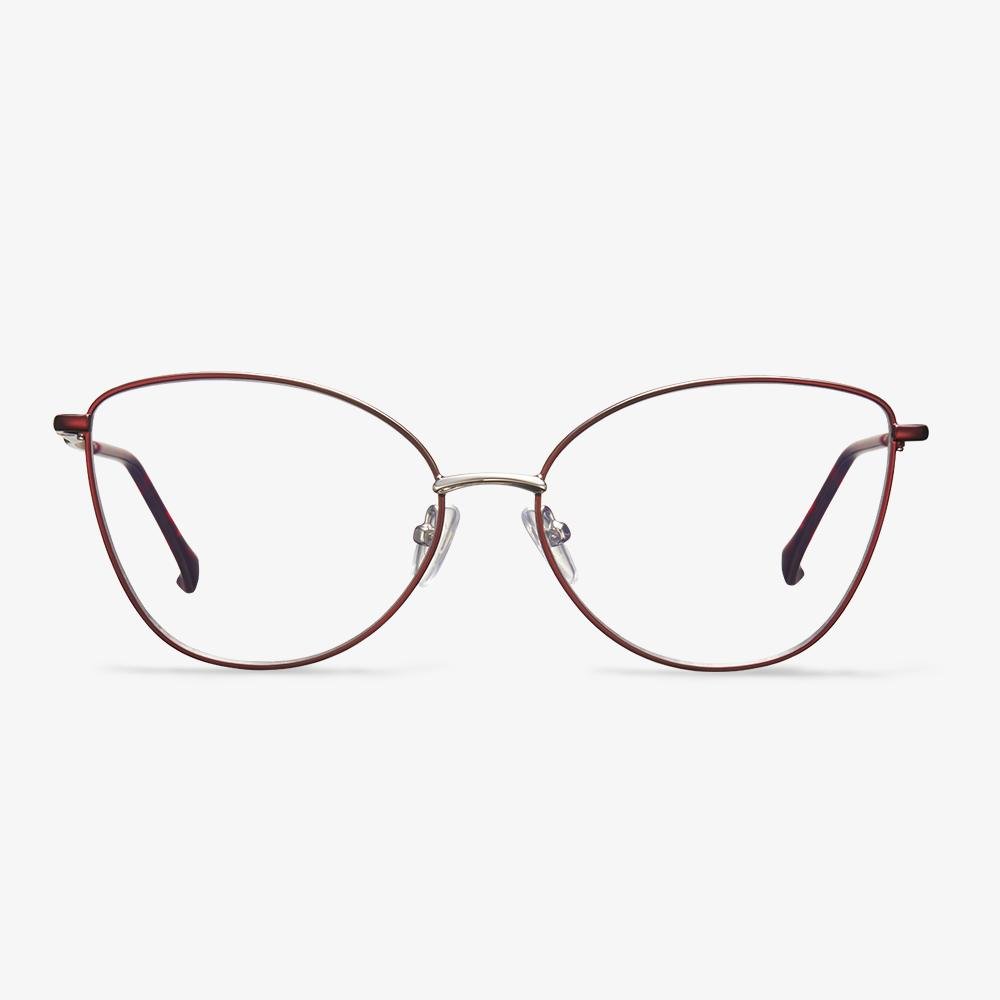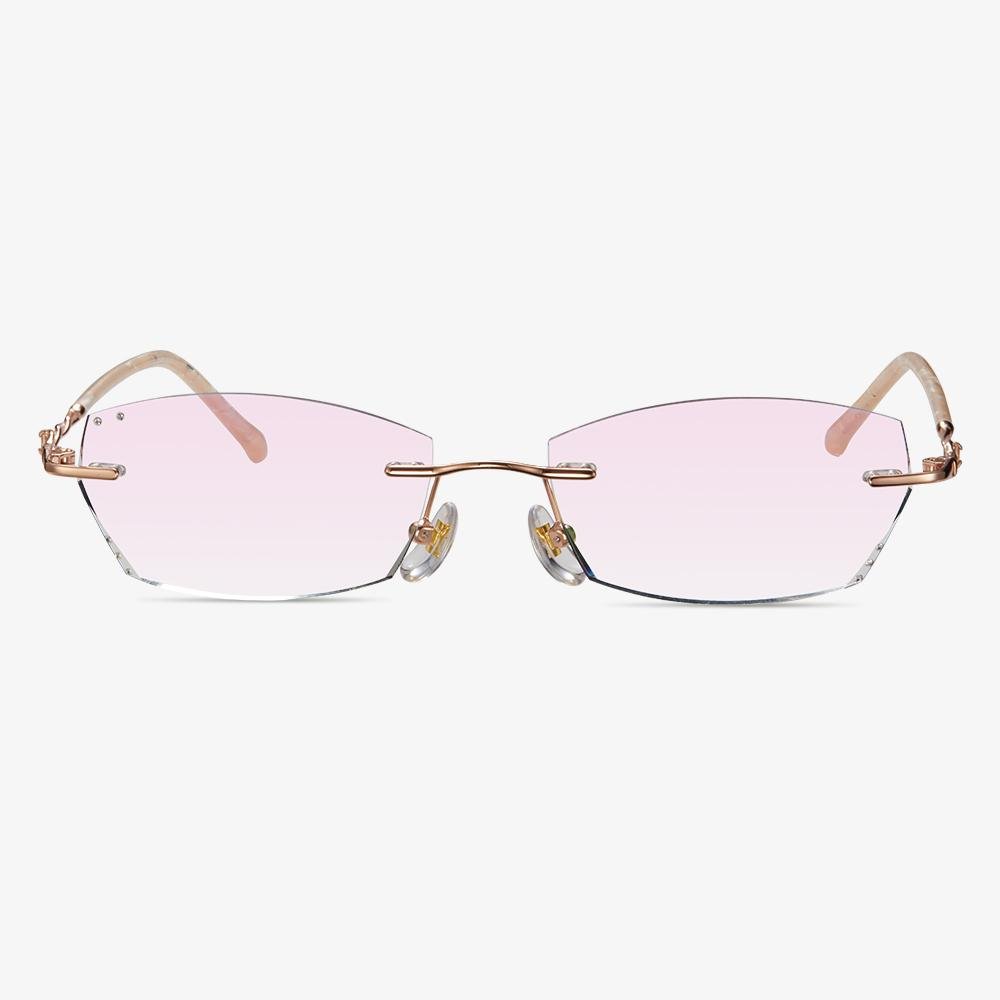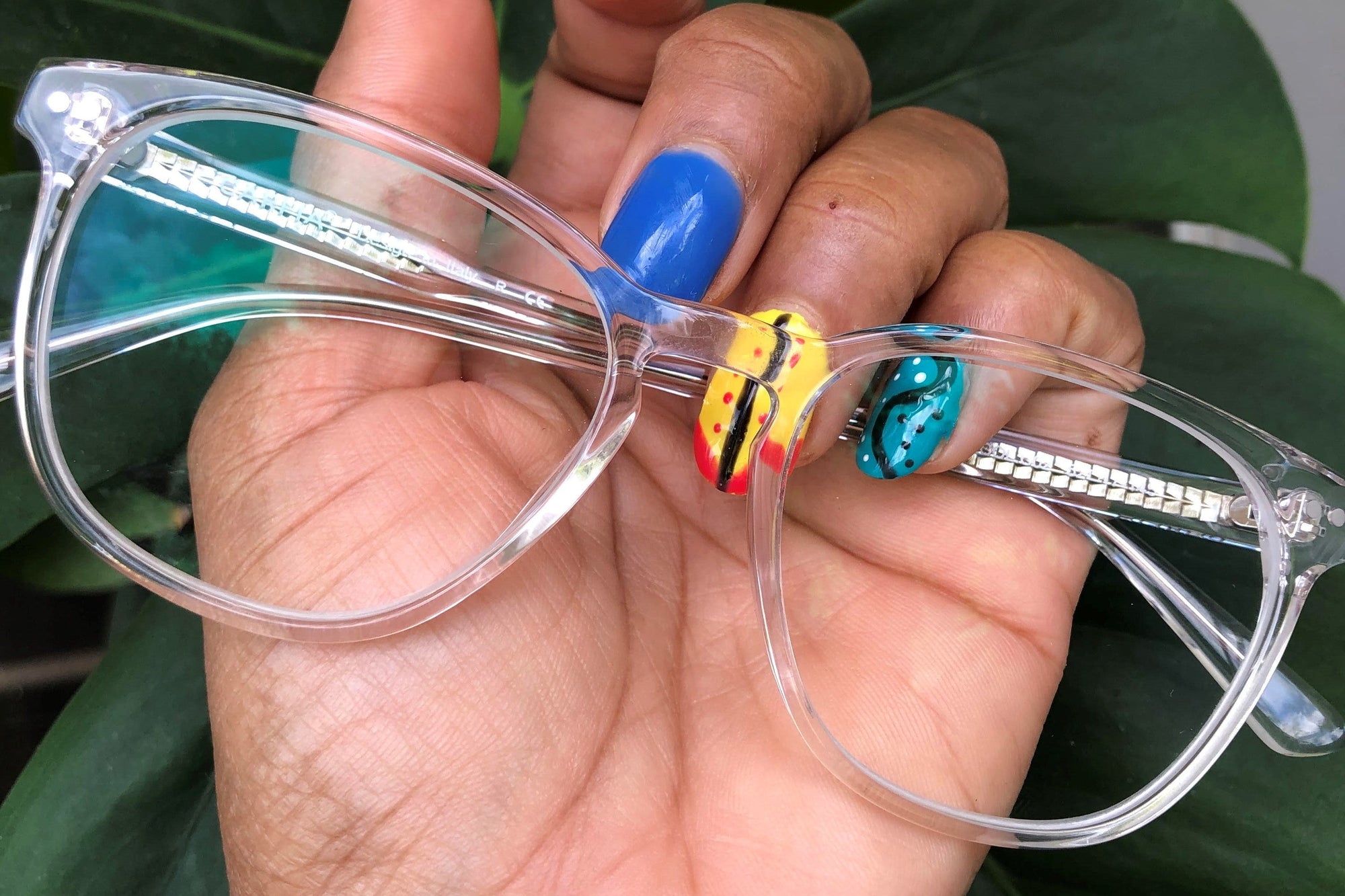Understand blue light correctly.
Blue light has been shown to affect the body's circadian rhythms, with too much exposure to it late at night from gadgets such as mobile phones disrupting a person's ability to fall asleep. Therefore, it is recommended that people limit screen time two to three hours before bedtime and set their devices to night mode to reduce glare, relieve eye fatigue and minimize blue light at night. However, as we learn more about blue light, not all of it is bad for us. Blue light has been found to play an important role in maintaining health, such as regulating the secretion of hormones in living organisms. Blue light helps prevent reduced night vision and has been shown to benefit refractive development in adolescents and minors.
Do prism glasses have side effects?
Prism glasses do not have side effects. Prescription prism glasses are designed to help your vision. Prism glasses are not apparently different from general glasses in terms of thickness. It may take a few days to get used to wearing new prism glasses or newer prescription glasses. There may be some eye strain during this time.
What are polarized lenses for?
Polarized lenses contain a layer of polarizing plates in which molecular chains form a light-grating structure in which dichromatic pigments, which absorb polarized light, are evenly distributed. A beam of light is absorbed when it vibrates in the same direction as the bars of the molecular chain of the polarized lens. The grating direction formed by the molecular chain of the polarizer is the axial direction of the polarizer, which is generally horizontal. When polarized lenses are worn, they absorb all the light that vibrates horizontally, thus absorbing the glare and preventing it from reaching the eyes.
Sales points of note for color changing lens
The discoloration rate of the lens is related to the intensity of ultraviolet light. The stronger the ultraviolet light is, the faster the discoloration rate will be, while the vice versa. The degree of discoloration is related to the ambient temperature. The higher the temperature is, the color of the lens is slightly lighter. Otherwise, the color is slightly darker. With the progress of manufacturing technology, the discoloration rate, especially the fading rate of the discoloration lens has been greatly improved, and the interference of temperature on the color depth is becoming less and less. Either glass or resin lenses react only with ultraviolet light, not visible light, so in some environments, they do not darken.
What Are Anti-Glare Glasses?
Anti-glare glasses are made with lenses that have an anti-glare coating or anti-reflective coating. This is an extremely thin layer placed on the lens itself so as to remove any reflections you might see from the surface of the glasses. This improves your vision by reducing the amount of glare that reflects off of your lenses.
How to Clean Glasses
To clean glasses by yourself, you need to be careful and use the correct way to avoid some damage to the glasses such as scratches, etc. So, follow the below steps to clean glasses lens.
1. Before cleaning the eyeglasses, you need to wash and dry your hands first. You can use the soap to wash your hands dry them.
2. Rinse your glasses under a gentle stream of tap water. This way will remove dust and other debris and avoid causing scratches on your lenses. But one thing you need to pay attention to. Please do not use hot water since it can destroy some eyeglasses lens coatings.
3. Use a small drop of lotion-free dishwashing liquid to each lens. You can only use lotion-free brands.
4. Then gently rub both sides of the lenses and all parts of the frame. Make sure to clean every part of the eyeglasses.
5. Rinse both sides of the lenses and the frame. Make sure to remove all traces of the soap. Otherwise, it will cause the lenses to be smeared when you dry them.
6. Shake youreyeglasses to get rid of the water on your lenses gently and inspect the glasses carefully to make sure they are clean.
7. Then dry the lenses and frame with a clean and lint-free towel. Make sure the towel is clean, or the dirt or debris on the towel will smear and scratch your glasses.
After all steps are finished, you also need to check your glasses again and check whether they are clean.
As for how to clean glasses, you can follow the above steps. But when cleaning your glasses, you should be careful enough. When cleaning your glasses, something you can’t do. In the following section, we will list some of them.
The Pros of Titanium Glasses
First, titanium is used in its pure form and as an alloy to provide a highly flexible eyeglasses frame. In fact, titanium eyeglasses are flexible. So, they are able to bend without breaking and can return to their original shape.
Second, titanium glasses come with good durability. Titanium alloy metals produce the world’s most durable eyeglasses frames. Choose a titanium frame and it will be nearly impossible to break.
Third, the titanium glasses are extremely lightweight. They are about 40% lighter than the standard steel glasses frames. In addition, due to the superior strength of the titanium frame, the frames can be made thinner making for even lighter frames.
Fourth, titanium glasses have hypoallergenic properties. It is rare anyone experiences adverse skin reactions to titanium frames. There are many other options on titanium frames such as color, texture, and patterns. What’s more, titanium glasses are corrosion-resistant.
So, are titanium glasses worth it? You may have the answers.











































